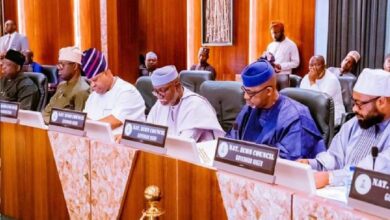How CBN Plans to Reduce Inflation and Stabilise Naira by 2024

The Governor of the Central Bank of Nigeria (CBN), Olayemi Cardoso, has projected that the country’s inflation rate will drop from 28.92 per cent to 21.4 per cent by 2024. He made this statement on Tuesday in Abuja while addressing the House of Representatives on the state of the economy.
Cardoso explained that the CBN is implementing an inflation-targeting policy, which aims to achieve price stability and lower policy rates. He said that this policy will be supported by improved agricultural output and reduced global supply chain disruptions.
He said: “The CBN’s inflation-targeting policy is designed to bring down inflation to 21.4 per cent by 2024. This will be facilitated by increased agricultural production and eased global supply chain pressures. The CBN’s inflation-targeting framework involves clear communication and collaboration with fiscal authorities to achieve price stability, potentially leading to lowered policy rates, stimulating investment, and creating job opportunities.”
Cardoso also acknowledged the challenges facing the foreign exchange market, which have resulted in the depreciation of the naira. He attributed this to speculative forex demand, inadequate forex supply, increased capital outflows, and excess liquidity.
He said: “The CBN has shifted to a market-driven exchange rate to create a stable macroeconomic environment and discourage currency hoarding. However, short-term volatilities are due to arbitrage and speculation. To address exchange rate volatility, the CBN has initiated a comprehensive strategy to enhance liquidity in the FX markets. This includes unifying FX market segments, clearing outstanding FX obligations, introducing new operational mechanisms for Bureaux De Change (BDCs), enforcing the Net Open Position (NOP) limit, and adjusting the remunerable Standing Deposit Facility cap.”
Cardoso admitted that the CBN’s actions have had a huge economic impact on the citizens. He added: “These costs are temporary, and our decisions will address a lot of fundamental issues affecting Nigeria’s macroeconomic landscape. These measures, aimed at ensuring a more market-oriented mechanism for exchange rate determination, will boost foreign exchange inflows, stabilise the exchange rate, and minimise its pass-through to domestic inflation.”




